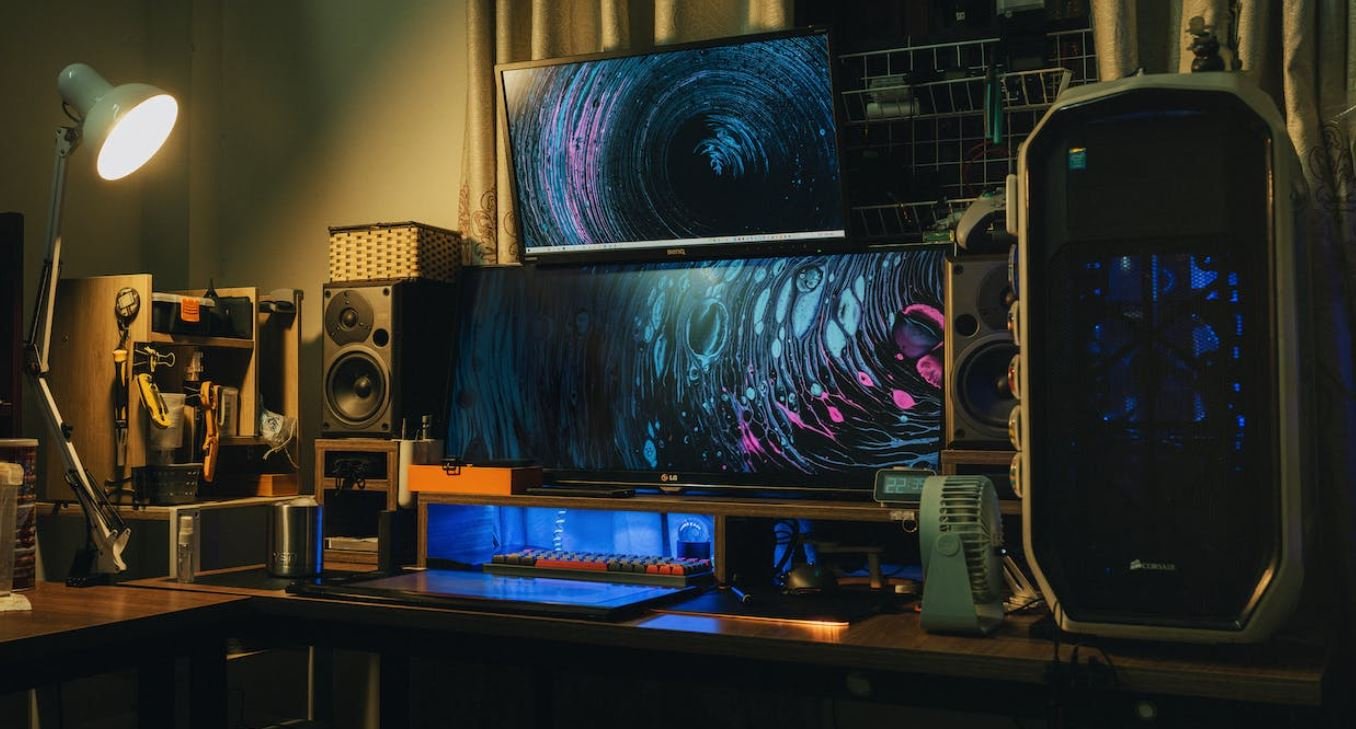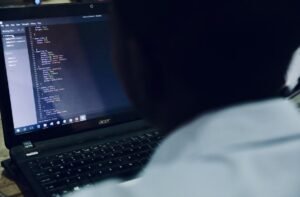AI Film Production
The world of film production is constantly evolving, and in recent years, the integration of artificial intelligence (AI) has had a profound impact on the industry. From pre-production to post-production, AI technology has revolutionized various aspects of filmmaking, making the process more efficient and streamlined. This article explores the fascinating role of AI in film production and how it is shaping the future of the industry.
Key Takeaways
- AI technology is transforming film production across all stages of the process.
- AI-powered tools enhance efficiency, creativity, and decision-making in the filmmaking process.
- Automated data analysis helps filmmakers understand audience preferences and optimize their content.
- AI can generate realistic visual effects and animations, reducing the need for manual work.
- However, human expertise and creativity still play a crucial role in filmmaking.
The Role of AI in Film Production
AI technology has had a profound impact on film production, offering innovative solutions to traditional challenges. One of the key areas where AI excels is data analysis. By analyzing vast amounts of data, AI algorithms can provide valuable insights into audience preferences and trends. These insights enable filmmakers to make informed decisions about storylines, casting, and marketing strategies.
*AI-powered tools can significantly reduce the time and effort required for tasks such as script analysis, budgeting, and scheduling.
AI-Powered Tools in Film Production
The adoption of AI-powered tools has transformed several stages of film production. Let’s explore some of the key areas where AI is making a difference:
1. Script Analysis
| Traditional Approach | AI-powered Approach |
|---|---|
| Manual script reading and analysis by industry professionals. | AI algorithms analyze scripts to identify elements such as emotional arcs, dialogues, and themes. |
2. Visual Effects and Animation
| Traditional Approach | AI-powered Approach |
|---|---|
| Manual creation and editing of visual effects and animations. | AI algorithms can generate realistic visual effects and animations, reducing the need for manual work. |
3. Post-production Editing
| Traditional Approach | AI-powered Approach |
|---|---|
| Manual editing and color grading by video editors. | AI-powered software can analyze footage and automatically apply editing techniques, saving time and effort. |
*AI-assisted Previsualization
One of the most exciting applications of AI in film production is previsualization. AI technology allows filmmakers to create virtual representations of scenes, sets, and characters, helping them visualize their ideas and plan shots more effectively. By providing a realistic preview of the final product, AI-assisted previsualization enables filmmakers to make better decisions during the shooting process and optimize resources.
The Human Element
While AI technology offers numerous benefits in film production, it is important to acknowledge the significance of human expertise and creativity. AI-powered tools may enhance efficiency and provide valuable insights, but it is human filmmakers who bring life, emotion, and artistic vision to the screen. The collaboration between AI and human creators is crucial in pushing the boundaries of filmmaking and delivering captivating stories to audiences worldwide.
The Future of AI in Film Production
As AI technology continues to advance, its role in film production is only expected to grow. Innovations in AI-assisted previsualization, data analysis, and automation are set to revolutionize the industry further. While AI may never replace human creativity, it will undoubtedly continue to empower filmmakers, enabling them to bring their visions to life more efficiently and effectively.

Common Misconceptions
Misconception 1: AI will replace human creativity in film production
One common misconception about AI in film production is that it will completely replace human creativity. However, while AI can assist in certain aspects of film production, it cannot replicate the unique and original ideas that humans bring to the table.
- AI can only generate ideas based on existing data and patterns.
- Human creativity involves intuition, emotion, and experiences that AI lacks.
- Films require a deep understanding of human emotions, culture, and societal dynamics, which AI may struggle to grasp.
Misconception 2: AI will make film production processes completely automated
Another common misconception is that AI will fully automate film production processes, eliminating the need for human involvement. While AI can streamline certain tasks, such as analyzing data or generating visual effects, it cannot replace the collaborative and decision-making aspects that humans contribute to film production.
- AI can partially automate repetitive and time-consuming tasks, but humans are needed for higher-level decision-making.
- Filmmakers’ creative vision and subjective choices cannot be replicated by AI algorithms alone.
- Collaboration and human interaction are essential in film production, especially when working with actors, directors, and crew members.
Misconception 3: AI-generated films will lack emotional depth and authenticity
Some people believe that AI-generated films will lack the emotional depth and authenticity that human-made films offer. However, AI is still learning to understand and express complex emotions, making it unlikely to capture the nuances of human experiences convincingly.
- AI lacks the ability to experience emotions, hindering its capacity to create emotionally resonant films.
- Films often require personal experiences and empathy, which AI does not possess.
Misconception 4: AI will eliminate jobs in the film industry
There is a misconception that AI will lead to job losses in the film industry, rendering many professionals obsolete. While AI may change certain job roles and introduce new tasks, it is more likely to augment human capabilities and create opportunities for collaboration, rather than replace human workers outright.
- AI can create new job roles and opportunities in fields such as AI programming, data analysis, and AI-assisted film production.
- Humans are still needed for creative decision-making, storytelling, and many technical aspects of film production.
- AI can free up time for professionals to focus on higher-level tasks and creative endeavors.
Misconception 5: AI will lead to a decline in film quality and originality
Some believe that AI will lead to a decline in film quality and originality, as it relies on data and patterns from existing films. However, AI can also be used as a tool to enhance creativity, offering new perspectives and possibilities to filmmakers.
- AI can analyze vast amounts of data to improve storytelling techniques, special effects, and audience engagement.
- AI algorithms can generate ideas and suggestions that spark creativity in filmmakers.
- When used in collaboration with human creativity, AI can contribute to unique and groundbreaking film production.

Artificial intelligence (AI) has revolutionized various industries including healthcare, finance, and manufacturing. Now, it is making its way into the world of film production, promising to reshape the future of entertainment. AI-powered tools and technologies are enhancing the creative process, streamlining operations, and improving the overall quality of films. In this article, we explore ten incredible aspects of AI film production that showcase its potential to transform the industry.
1. Blockbuster Potential:
AI algorithms can generate story ideas and predict their potential success. These intelligent systems analyze vast amounts of data, including previous box office records, audience preferences, and social media trends, to generate film concepts with blockbuster potential.
2. Script Analysis:
AI-powered software analyzes film scripts, identifying structure, pacing, dialogue, character development, and emotional arcs. By providing real-time feedback and suggestions, this technology assists filmmakers in refining their scripts to deliver compelling narratives.
3. Pre-production Planning:
AI algorithms analyze complex sets of data, including shooting locations, weather forecasts, and equipment availability, to optimize pre-production planning, minimizing costs and time while maximizing efficiency.
4. Visual Effects (VFX):
AI-driven VFX systems empower designers by automating certain aspects of the process. These tools expedite the creation of realistic and immersive visual effects that enhance the overall cinematic experience.
5. Casting:
AI-powered casting platforms analyze actors’ previous performances and attributes to suggest ideal casting choices for specific roles. This technology helps filmmakers find the perfect fit to bring their characters to life.
6. Editing Assistance:
AI-based editing software simplifies the post-production process by automating repetitive tasks. These intelligent tools analyze footage, select the best shots, and synchronize audio, reducing editing time and improving overall quality.
7. Color Grading:
AI algorithms analyze visual data, including light, shadow, and color schemes, to enhance the overall cinematic experience. These systems intelligently apply color grading techniques, creating visually stunning and captivating films.
8. Music Composition:
AI software can compose original scores, tailor-made for specific scenes. By analyzing emotional cues, pacing, and visual elements, these intelligent tools produce harmonious compositions that elevate the film’s impact.
9. Predictive Analytics:
AI algorithms can forecast audience reactions, predict box office success, and even suggest marketing strategies. This data-driven approach helps filmmakers make informed decisions while navigating uncertain territories.
10. CG Animation:
AI-powered animation tools automate certain aspects of the animation process, reducing production time and cost. These technologies enhance the level of detail, texture, and movement, creating awe-inspiring computer-generated animations.
As the film production industry embraces AI, a new era of innovation and creativity dawns upon us. By leveraging the potential of artificial intelligence, filmmakers can streamline their workflows, create captivating stories, and ultimately deliver an exceptional cinematic experience to audiences worldwide. It is indeed an exciting time for both filmmakers and movie enthusiasts alike.
Frequently Asked Questions
How does AI contribute to the film production process?
AI has revolutionized the film production process by enhancing various stages such as scriptwriting, casting, pre-production planning, visual effects, and post-production. It can analyze data, generate insights, automate repetitive tasks, and optimize decision-making, resulting in more efficient and cost-effective film production.
What are some applications of AI in film post-production?
AI has numerous applications in film post-production such as automated video editing, color grading, visual effects, sound design, and motion tracking. It can streamline these processes, improve quality, and save time by automatically detecting and correcting errors, suggesting creative enhancements, and generating realistic visual effects.
Can AI replace human creativity in film production?
No, AI cannot replace human creativity in film production. While AI can automate certain tasks and assist in decision-making, the creative aspects of filmmaking, such as storytelling, directing, and acting, require uniquely human skills and emotions. AI can enhance and support the creative process but cannot replace it.
What are the advantages of using AI in film production?
The advantages of using AI in film production include increased efficiency, cost savings, enhanced productivity, improved quality, and automation of repetitive or time-consuming tasks. It can also assist in data analysis, predictive modeling, and audience insights, leading to better decision-making and potentially more successful films.
Are there any ethical concerns associated with AI in film production?
Yes, there are ethical concerns associated with AI in film production. Some concerns include potential job displacement for certain roles, privacy issues related to data collection and analysis, biases within AI algorithms, and the impact on the creative process and artistic integrity. It is essential to address these concerns and ensure ethical practices when implementing AI in film production.
How can AI assist in film casting?
AI can assist in film casting by analyzing vast amounts of data to identify potential actors or actresses who fit certain criteria, evaluate past performances, and predict their suitability for specific roles. It can also assist in diversity and inclusion efforts by detecting biases and promoting a more inclusive casting process.
What role does AI play in scriptwriting for films?
AI can play a significant role in scriptwriting for films. It can analyze vast amounts of existing data, identify patterns, generate insights, and even assist in generating dialogue or storylines. However, the creative aspects of scriptwriting, such as character development and storytelling, are still primarily driven by human writers.
Can AI be used for audience analysis and film marketing?
Yes, AI can be used for audience analysis and film marketing. It can analyze social media data, online behavior, demographics, and other relevant factors to gain insights into audience preferences and behavior. This information can then be used to tailor marketing campaigns, target specific audience segments, and make data-driven decisions to maximize the film’s reach and success.
How does AI contribute to the visual effects in films?
AI contributes to visual effects in films by automating time-consuming tasks such as rotoscoping, tracking, and compositing. It can also simulate realistic physics, generate lifelike virtual characters, and enhance overall visual quality. AI-powered tools have significantly improved the efficiency and realism of visual effects, enabling filmmakers to accomplish complex scenes more efficiently.
What are some future possibilities of AI in film production?
The future possibilities of AI in film production are vast. With further advancements, AI could potentially assist in real-time virtual production, generate entire films or scenes autonomously, enable interactive and personalized storytelling experiences, and revolutionize distribution and exhibition processes. Additionally, AI may contribute to the development of AI-generated actors or virtual representations of real-life actors, opening up new creative possibilities.




